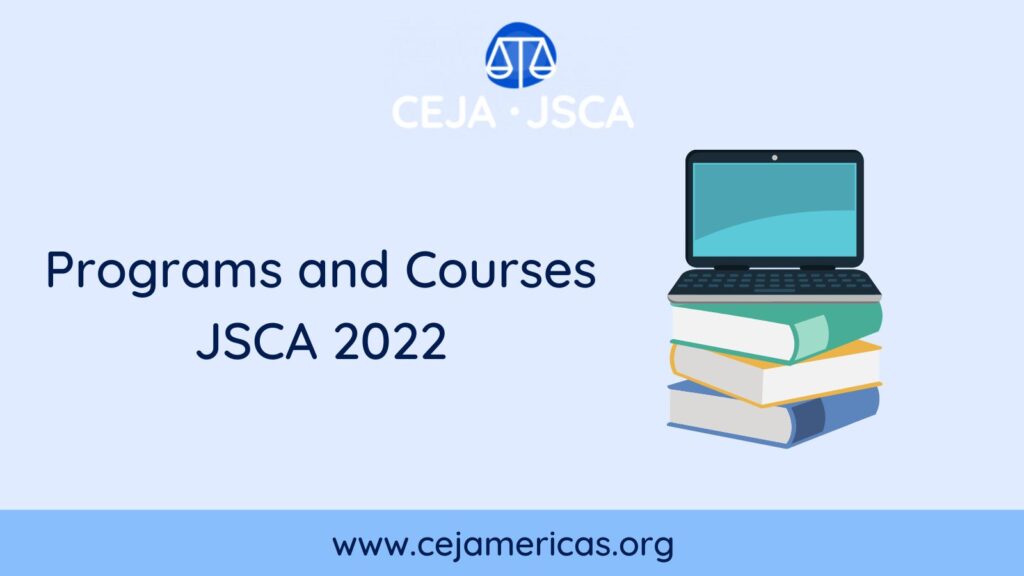
The main objective of these programs and courses is that the legal community and the general public have access to high quality, innovative and disruptive content on justice in the region, without the need for physical displacement and providing the possibility of accommodating, according to their time availability, analysis of the modules, the submission of evaluations and extra activities that are available in each of the courses.
Please email us at info@cejamericas.org with any questions.
